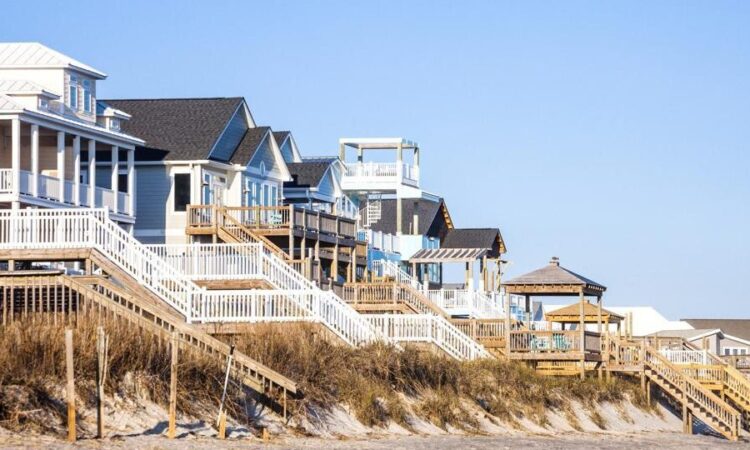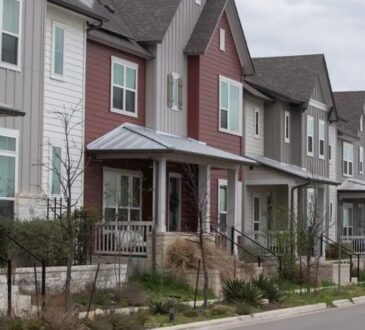
Editorial Note: We earn a commission from partner links on Forbes Advisor. Commissions do not affect our editors’ opinions or evaluations.
As with most of the country, the real estate market in North Carolina has been on a wild ride during the past few years. While the COVID-19 pandemic initially caused a slowdown in home sales, buyer hesitation was short-lived.
“By mid-May or June of 2020, we took off like a rocket ship,” says Tom Mabrey, a veteran real estate broker with Keller Williams Preferred Realty in North Carolina’s Triangle region—which comprises the Raleigh, Durham, and Chapel Hill areas. “It was a crazy time.”
Back then, buyers were offering to pay well above listing price and some were even making non-refundable due diligence deposits of up to $100,000 in order to secure a home. The market has since cooled, but inventory remains low and prices are still rising, albeit much more slowly than in years past.
Current Housing Market in North Carolina
Boasting both beach and mountain regions, North Carolina has many attractive features, which help keep its housing market strong. In fact, data from moving companies shows that North Carolina is one of the top destinations in the nation for those relocating.
The state was second only to South Carolina as a top inbound state in the 2022 Moving Migration Report from North American Moving Services. Last year, 64% of North Carolina movers were moving in from another state, and Raleigh was the top city in the nation for attracting new residents, according to the report.
Meanwhile, Atlas Van Lines’ Annual Migration Patterns Study found North Carolina to be the top inbound destination for 2022, and a similar study from U-Haul pegged the state as fourth in the nation for growth last year. Each company used its internal transaction data to determine the number of moves into or out of states.
People don’t tend to leave North Carolina, according to Marbey, so he cautions buyers against thinking they can wait for demand to lessen. He doesn’t see that happening any time soon and notes the state is currently dealing with a low housing inventory.
Related: Best Moving And Relocation Loans Of 2023
North Carolina Housing Trends and Stats
Across the state, real estate listings and sales are down compared to a year ago. However, that may be more a reflection of how strong sales were last year as opposed to an indication of a soft market this year.
Listings and Sales Are Down in North Carolina
Statewide, the number of real estate listings was down 4.8% from a year prior, according to the latest number from industry group NC Realtors. The association’s April 2023 NC Housing Report—the latest report at the time of writing—also noted that sales had dropped 22.5% year-over-year.
However, sales aren’t declining at all price points. Sales of homes priced between $500,000 and $2 million increased more than 5% during the 12-month period ending in April 2023.
Some regions of the state have seen a more pronounced drop in the number of houses for sale. For instance, listings in Durham County were down 36.7% year-over-year in June 2023, according to the Durham Regional Association of Realtors and the Triangle Multiple Listing Service. Closed sales in the county declined 24.5% during that same period.
North Carolina Housing Prices and Inventory Are Up
While listings and sales are down, prices have continued to climb. Statewide, the median sales price hit $302,549 in April 2023, an annual increase of 4.4%, according to NC Realtors. The median price in April 2020 was only $201,000.
Real estate brokerage firm Redfin says the following North Carolina communities have the fastest-growing sales prices in the state as of June 2023:
- Denver: 53.5%
- Elizabeth City: 35.7%
- Holly Ridge: 35.6%
- Franklin: 35.2%
- Kill Devil Hills: 27.2%
Despite a still-low statewide inventory, the number of homes for sale in April 2023 increased by16% compared to a year ago. NC Realtors found that, overall, the state had an inventory of 3.17 months in April. Availability varied based on listing price. There were only two months of homes priced between $125,000 and $249,999. Meanwhile, the state has an inventory of 11.9 months for homes priced at or above $2 million.
North Carolina Housing Market Predictions
After more than 20 years working in the state, Mabrey has a word for the North Carolina real estate market: buoyant. With the exception of the pandemic years, the state’s housing market doesn’t seem prone to wide swings up or down.
In recent years, Raleigh and the Triangle region has become a destination for tech companies. As those businesses relocate offices to North Carolina, they’ll likely bring workers with them—and those new residents will need housing.
Between new businesses and the number of new residents flocking to the state, it doesn’t appear that housing demand will slacken in the foreseeable future. As a result, prices aren’t expected to decline, a trend in line with national housing market predictions.
Should You Buy or Sell in the North Carolina Housing Market?
While the post-pandemic housing market in North Carolina has cooled significantly, it’s still a seller’s market with only 3.17 months of inventory. NC Realtors says six months inventory is needed for a balanced market and more than six months would make it a buyer’s market.
What’s more, most homes are still selling at or near their asking price. Redfin reports sellers statewide received 99.6% of their list price in June 2023. In Durham County, the percentage was 101.5%, according to the Durham Regional Association of Realtors.
Although Redfin data indicates homes are staying on the market for a median of 32 days, real estate website Zillow finds it only takes a median of seven days for a property to move to pending status in North Carolina.
Between these statistics and higher mortgage rates, buyers may be tempted to wait until prices begin to fall. But that could be a mistake.
“I think (buyers) just have to realize that’s not happening,” Mabrey says. He believes it’s unlikely that home prices will fall and notes some buyers have taken out adjustable-rate mortgages in anticipation of lower interest rates in the future. “We don’t think we’ll be in a high-rate environment forever,” according to Mabrey.
While buyers may not see any deep discounts on housing in the near future, they can take comfort in knowing that the days of frantic bidding wars seem to be over.
Faster, easier mortgage lending
Check your rates today with Better Mortgage.




